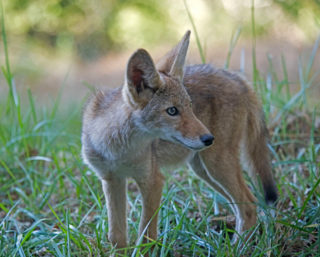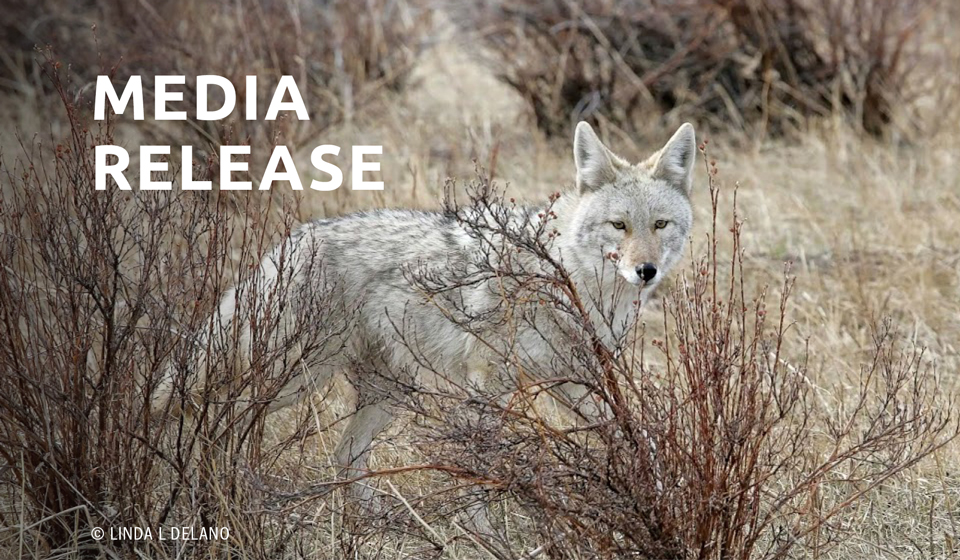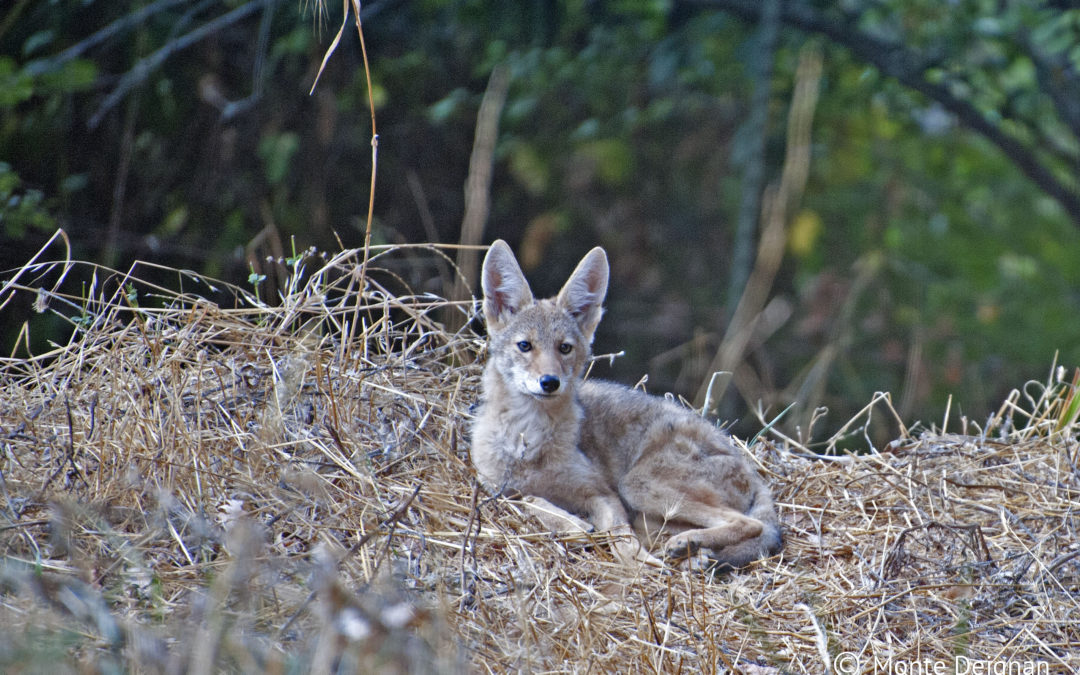
by Project Coyote | Feb 25, 2020 | In the News
Most Western states rely on hunters to keep cougar numbers in check. It makes a sort of logical sense: if cougar populations are high, attacks on elk, bighorn sheep and deer should be high. So should attacks on livestock and humans. But a new study casts doubt on the effectiveness of sport hunting as a means of predator control.

by Project Coyote | Feb 21, 2020 | In the News
For a week, Vanessa Prior’s Great Pyrenees named Ruth Bader has had a friend–a black coyote that researchers have been tracking since late December when it was first spotted in Smyrna.
It ended up in Prior’s backyard in East Cobb, where for a week it would show up every morning to play with Ruth Bader.

by Project Coyote | Feb 21, 2020 | Action Alert
Maryland residents, we need your help TODAY to pass a bill that would prohibit cruel and senseless wildlife killing contests in Maryland. During these barbaric events, which typically last 1 or 2 days, participants compete to kill wildlife — including foxes, coyotes, and raccoons — for prizes and entertainment. At the recent Predator Hunters of Maryland contest in Unionville, participants killed roughly 200 animals. And the winning team alone killed 27 foxes at the Southern Maryland Predator Hunt in Waldorf.

by Project Coyote | Feb 20, 2020 | Media Release
DENVER, CO – The Institute for Human-Animal Connection, Sturm College of Law, and DU Media, Film & Journalism Studies, in partnership with Project Coyote, will host Banning Wildlife Killing Contests in Colorado on Wednesday, Feb. 26, at the University of Denver. This free event will raise awareness about wildlife killing contests in Colorado — where participants compete to kill wild animals, including coyotes and prairie dogs, for entertainment and prizes.

by Project Coyote | Feb 19, 2020 | In the News
The photographs are disarming: dozens of coyotes, their fur smeared with blood, strewn across the ground while grown men and sometimes children stand over them, proudly grinning from ear to ear. This is a familiar scene at wildlife killing contests, a little-known bloodsport rarely glimpsed by the general public.





